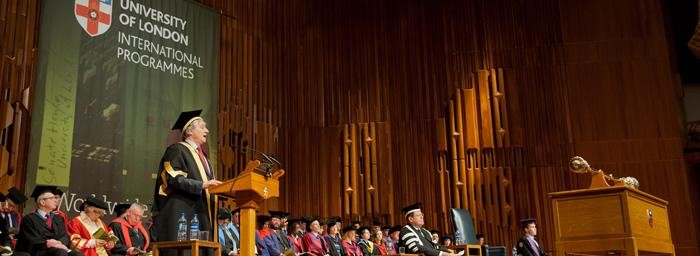| the #1 Online and Blended University in the World |

|
| THE UNIVERSITY OF LONDON |
Noted in the link for Frequently Asked Questions (FAQ) is a sub-link listing all known colleges and universities in the world. The list is not inclusive of the newest institutions but is updated as they are listed by UNESCO. Otherwise
it is the most comprehensive list presently published. What it shows is
that 4/5ths of the world's institutions of higher learning are not accredited by the US Department of Education, a little
known fact rarely mentioned. However, most non-accredited USA institutions do hold a license to offer degrees
from their resident states where they are domiciled and most all the schools in other countries, also non accredited
in the USA, hold licenses and accreditation from their host nations. The
number of individual government-sanctioned national accrediting offices, agencies and ministries number at least 193.
US bloggers, and even US News & World Report, ignore most of this list of the world's "other" accredited schools and concentrate their
major efforts almost exclusive on ratings the USA accredited school mainstream. Unfortunately some of the world's greatest
universities in the world are ignored. One annual service does not ignore them, at least not those who provide access to their
university programs via the internet. Best and Worst Online Schools has been publishing ratings of domestic and international schools offering such programs for free annually
since 2002. It is the first service of its kind predating US NEWS rating of online programs entry into the ratings by several
years. The difference is that US NEWS rates individual programs not the ability of the school as does BEST and WORST to rate
the entire schools ability to deliver online higher education and the schools commitment and the faculty to deliver to deliver
superior, not inferior online degree programs. The perception
by Americans who promote US accreditation as the "gold standard" dismiss a growing and major impact of international
schools that are impacting the future of global higher education, What institutions of higher learning should be considering is
not adding one or even two or three local certifications in their home nation, but multiple, multinational accreditation globally.
Online education is
changing the picture of higher education exponentially. Today, a small, obscure school literally located in Nowhere, Anywhere,
in the World, can leap-frog over traditional, well endowed, and highly recognized schools with a single bound, capture their
market, and grow to unimaginable proportions.
 |
 |
How
Much is Enough?
The new question then is not who or
what accredits the school, rather, it is -- How much accreditation does the school need? To meet this new 'raising
of the bar', many of the marginal and long considered 'less than worthy' schools have succeeded in acquiring
recognition from so-called non-government-sanctioned agencies and other nations all over the world and in multiple forms. It
is worthy of note too that long established colleges in perceived secure markets for their students should not dismiss the
new rising genre' of schools out-of-hand. They are indeed coming and coming after students and the American student
market no matter how previously inoculated from outside global schools as some are quite successful and more of them are coming
every day.
What is essential to recognize is that in a global
village, accreditation does take on many forms. With most of the world's institutions of higher learning not
accredited by or desiring to seek US accreditation, the competition for students worldwide will continue to grow and become
increasingly more intense. The burgeoning competition is not just directed to and among American schools but to and among
historic traditional institutions as well, regardless of where in the world they are located, licensed or accredited or how
long they have existed.
 |